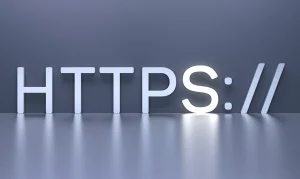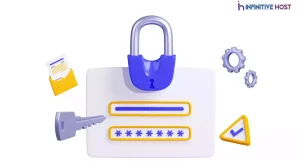Having an SSL certificate on a website indicates to visitors that it is secure. In addition, search engines give your site their seal of approval, indicating that it is safe to use. Because of this, you’ll want to secure your website with an SSL certificate. SSL (Secure Sockets Layer) is a security technology for authenticating and encrypting data sent between a web server and a web browser over network connections. A safe connection between your website and your visitors is ensured by an SSL certificate.
It is possible to get SSL certificates in a variety of forms and with varying levels of validation and cost. How can you know which SSL is the best for your website and business? To assist you in making an informed decision, we’ve gone over the many types of SSL certificates available.
When and Why Do You Need an SSL Certificate?
SSL has become as essential to websites as wearing a seatbelt before driving, regardless of whether you run an ecommerce company or a blog.
You’ll want an SSL certificate for the following three reasons:
Data Security and Visitors’ Confidence
Encryption and protection from cyber dangers such as hackers, phishing, and identity theft are two of the key functions of an SSL certificate. On your website, you don’t want visitors to see a notification that says “your connection is not private.” Such errors can be avoided if you have a valid SSL certificate.
Authenticity and Reliability
An identity verification procedure is required prior to the installation of an SSL certificate. SSL serves as a deterrent to phishing sites since it demonstrates that your website is authentic and not a spoof or an imitation of your company. SSL/TLS provides another crucial benefit: the protection of data. In SSL/TLS, a message authentication code (MAC) is used to ensure that the data is not lost or modified in any manner. Sending and receiving communications is a two-way street.
Enhances Your Position in Search Engines
As a means of making the internet a safer environment for everyone, search engines like Google have taken a hard stance against websites that aren’t SSL-encrypted. Secure Sockets Layer (SSL) transforms HTTP into Hypertext Transfer Protocol Secure (HTTPS).
How SSL Certificates Work?
A safe and encrypted connection between the hosting server and your visitor’s application has been formed, thanks to SSL (web browser or app). A copy of the server’s SSL certificate will be sent to the browser in response. A signal is sent to the server after the browser has performed some validation checks to ensure that the SSL certificate is trusted. A secure SSL connection will be established between your website and the visitor’s browser as a result of the server’s acknowledgement and digital response.
The number of domains and subdomains and the level of validation of the certificate are the two primary categories for determining the kind of SSL certificate. Consequently, four distinct types of SSL certificates are available:
Types of SSL Certificates
Single Domain SSL Certificates:
An SSL certificate that is “single-domain only” can only be used on a single domain. It is only valid for the issued domain and its subdomains, and cannot be used for authentication of any other domain.
Wildcard SSL Certificates:
Wildcard SSL certificates of the subdomains of a single domain are included in an SSL certificate. A main domain serves as a canopy over which a subdomain can flourish. Subdomains typically have an address that doesn’t start with “www.”
Multi-Domain SSL Certificates (MDC):
Multiple domains can be included on a single SSL certificate, which is known as an MDC. It is possible for domains that are not subdomains to share a certificate by using a Multi-DoWhat main Certificate (MDC).
SSL Validation Levels
Prior to giving you an SSL certificate, the certificate authority (CA) verifies your business’s validity.
There are three layers of SSL certificate validation:
Strictly for the purpose of verifying domain ownership, SSL certificates with Domain Validation (DV) are used. In most cases, it’s done via email verification and does not necessitate further examination by the CA. SSL certificates can be purchased at an affordable price using this method.
In terms of validation, Organisation Validation (OV) SSL Certificates are the next tier up. Additionally, the CA checks your business by contacting you directly or through your company. CA confirms that you have full ownership of the domain name as well as that it is registered to a legitimate business. It is widely accepted that these credentials are of high quality.
SSL Certificates with Extended Validation (EV) provide the highest level of trust and security for corporate websites. It entails a thorough investigation of your company’s history. The CA has a stringent screening process for this certificate.
Some browsers display prominently the names of businesses using EV SSL certificates. When you visit their website, you’ll see their domain name in green next to it.
Benefits and Drawbacks to Different SSL Certificates
There are no drawbacks to using an SSL certificate to protect your website’s security. There are advantages and disadvantages to each certificate, which makes each one ideal for a specific purpose or requirement.
The primary benefit of a single-domain SSL certificate is its low cost and the fact that it protects all pages associated with the domain. The only drawback is that no subdomains are protected.
In exchange for its higher cost, Wildcard SSL certificates include an entire domain, all of its linked sites, and an infinite number of subdomains. Unfortunately, it excludes all second-level subdomains.
It is possible to secure numerous domains with a single SSL certificate. Getting an SSL certificate for each of your domains may seem pricey, but if you get one that covers all of your domains, you save money.
As a multi-domain Wildcard SSL Certificate, it provides coverage for up to 100 domains and limitless subdomains at first level. Its main drawback is that it costs a lot of money. The Wildcard SSL certificate, on the other hand, is extremely cost-effective for big sites or enterprises.
How to Pick the Right SSL Certificate
SSL certificates come in a variety of flavours, as demonstrated. We can assist you choose the proper SSL certificate for your website if you aren’t sure which one is best for your needs.
The single-domain SSL certificate is a better option for a personal or small website with a single domain because it is more economical and performs the job.
Wildcard SSL certificates are ideal if your company website has a single domain, but several subdomains. Purchasing a separate SSL certificate for each subdomain would be expensive and time-consuming. The multi-domain SSL certificate is a good option for large websites or enterprises with several domains (e.g., a corporation that owns multiple brands, each with its own name). If you have multiple domains, this will save you money over purchasing an SSL certificate for each one. The multi-domain Wildcard SSL is suitable for organisations who wish to save both time and money by securing several domains and an infinite number of subdomains.
How Visitors Will Know If Your Website Has an SSL Certificate?
With an SSL certificate in place, users can immediately determine if your website is secure and if the certificate is valid. How to do it? We’ll walk you through it.
If you’re using Google Chrome, select “Certificate” by clicking on the padlock symbol. For your convenience, we’ve provided you with a complete breakdown of who granted and owned the SSL certificate that’s now deployed on our Kinsta website. Additionally, you’ll see that the URL in the address bar begins with HTTPS in addition to the little padlock icon. HTTPS shows that our website’s connection is secure and that an SSL certificate has been issued by a trusted authority.
Cost of SSL Certificates
The cost of SSL certificates varies greatly depending on the type of certificate, validation level, and where you buy it from (e.g. Comodo, VeriSign, GeoTrust, etc.). The Cloudflare integration provides free SSL certificates with wildcard support for all WordPress blogs hosted there. The cost of DV and single-domain SSL certificates is the lowest when purchasing a premium or paid SSL certificate.
Read More : Why Is cPanel Email Going To Spam And How To Fix It?
Summary
SSL certificates are used by nearly every website to ensure a secure connection to the internet. And given the rise in cyber-threats, it’s no surprise that big search engines are severely enforcing this rule.
SSL certificates come in a wide variety of forms; now you know which one best suits your needs. With any luck, it will help you narrow down your search for an SSL certificate.







